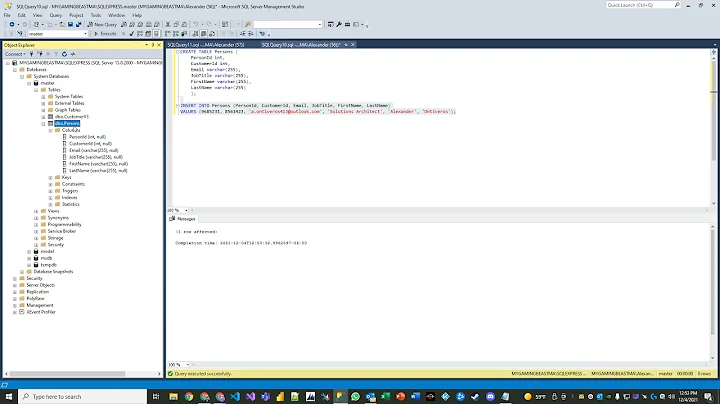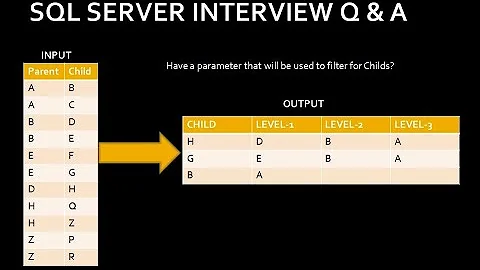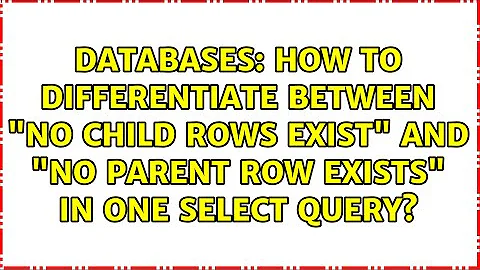How to select parent row only if has at least one child?
10,790
Solution 1
You can do this using an EXISTS, like this:
SELECT *
FROM Parent p
WHERE EXISTS (SELECT 1
FROM Chilren c
WHERE c.Parent = p.id)
Or using a IN like this:
SELECT *
FROM Parent p
WHERE p.id IN (SELECT c.Parent
FROM Chilren c)
Solution 2
An inner join only returns rows that match both tables:
select distinct p.*
from Parent p
inner join Children c on c.parent = p.id
Solution 3
Select p.id, p.text
from Parent p
inner join Children c on p.id = c.parent
group by p.id, p.text
Solution 4
SELECT p.*
FROM Parent p
WHERE EXISTS (SELECT 'X' FROM Children c WHERE c.parent = p.id);
Related videos on Youtube
Author by
Matt McCormick
Updated on April 21, 2022Comments
-
 Matt McCormick 8 months
Matt McCormick 8 monthsI have a simple one-to-many relationship. I would like to select rows from the parent only when they have at least one child. So, if there are no children, then the parent row is not returned in the result set.
Eg.
Parent: +--+---------+ |id| text | +--+---------+ | 1| Blah | | 2| Blah2 | | 3| Blah3 | +--+---------+ Children +--+------+-------+ |id|parent| other | +--+------+-------+ | 1| 1 | blah | | 2| 1 | blah2 | | 3| 2 | blah3 | +--+------+-------+I want the results to be:
+----+------+ |p.id|p.text| +----+------+ | 1 | Blah | | 2 | Blah2| +----+------+ -
 Hogan over 12 yearsI have not tested but I'm guessing this is slower than a join.
Hogan over 12 yearsI have not tested but I'm guessing this is slower than a join. -
 Nick Craver over 12 years@Hogan - The exists it the fastest approach. The optimizer will do the same execution plan for a null checked outer join...which will be as fast, but the exists is never slower.
Nick Craver over 12 years@Hogan - The exists it the fastest approach. The optimizer will do the same execution plan for a null checked outer join...which will be as fast, but the exists is never slower. -
 Hogan over 12 yearsNeat. Thanks @Nick. This is true for mysql, ms sql and oracle?
Hogan over 12 yearsNeat. Thanks @Nick. This is true for mysql, ms sql and oracle? -
 Nick Craver over 12 years@Hogan - The exists being faster, yes that holds true...how smart the optimizer is in making an equivalent left join have the same execution plan, I'm not sure about MS SQL.
Nick Craver over 12 years@Hogan - The exists being faster, yes that holds true...how smart the optimizer is in making an equivalent left join have the same execution plan, I'm not sure about MS SQL.





